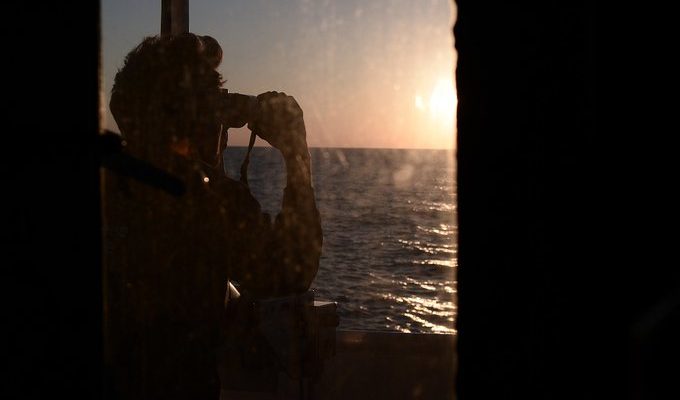On 30 July, Alarm Phone denounced the “forced return of 120 people to Libya” and noted they were “alerted to a boat in trouble in international waters: the 120 people, including a pregnant woman and people with gunshot wounds, were afraid to be returned to Libya. We lost contact with them and have now learned that they have been kidnapped by the Libyan coastguard”.
Only a few days earlier, on 26 July, 57 people perished in the Mediterranean Sea, including some 20 women and an unknown number of infants and children. Since the beginning of the year, approximately 1,000 people have died in the Mediterranean, adding to the 20,000 lives claimed there between 2014 and 2020, according to IOM’s Missing Migrants project.
In addition to this ongoing unimaginable loss of life, there are tens of thousands (it is currently impossible to calculate an exact figure) of asylum seekers who have been returned to Libyan detention centres by the Libyan coast guard since the beginning of the year.
According to an Amnesty International report published on 15 July entitled: ‘No one will come looking for you: forced returns from the sea to Libya’s detention centres’, human rights violations of migrants and refugees in Libyan detention centres, already ongoing for a decade now, continued unabated in the first half of 2021 with ‘brutal beatings, sexual violence, extortion, forced labour and inhumane detention conditions’ reported. Unsurprisingly, last June Médecins Sans Frontières was forced to suspend humanitarian activities in two centres in Tripoli:
It is not an easy decision to make because it means that we will not be present in places where we know people are suffering on a daily basis. The continuing violent incidents which cause serious harm to migrants and refugees, and risk the safety of our staff, have reached a level that we are no longer able to accept. Until the violence stops and conditions improve, we will no longer be able to provide medical and humanitarian assistance in these facilities.
Beatrice Lau, head of the MSF mission in Libya
Meanwhile the Libyan coast guard, according to Admiral Agostini of the European naval mission Irini, is no longer under the control of Europe and Italy, despite the fact that on 15 July the Italian Parliament approved the allocation of new funds to Libyan militias.
The current government has therefore not given any signs of discontinuity with previous governments by again financing Libyan militias and making itself complicit in both the deaths that occur off the Libyan coast and the torture perpetrated in Libyan detention centres.
Moreover, the current government, in continuity with the Minniti and Salvini governments, is preventing humanitarian ships from carrying out rescues, by systematically subjecting the vessels to administrative compliance stops. Detentions of vessels which are illegitimate because they are imposed for alleged failure to comply with rules on ship safety. What is disputed is that the minimum navigation and safety standards imposed by the international conventions of the International Maritime Organisation (IMO) and the International Labour Organisation (ILO) have not been met, despite the fact that the flag states have already certified the safety of the ships in all cases of detention since 2021. In this regard it is important to remember that the certification of the safety of vessels, under international and European law, is at the discretion of flag states and is not a responsibility which lies with port states.
According to The Manifesto’s recent investigation, these detentions have been ordered arbitrarily for political reasons, and flag states, namely Spain (as regards Open Arms and Aita Mari), Norway (as regards Ocean Viking and Geo Barents) and Germany (as regards Sea-Watch 3 and 4, Alan Kurdi and Sea-Eye 4) – have threatened to challenge these decisions.
In the vast majority of detentions of vessels, the Italian authorities accused captains of respective vessels of having rescued more people than could be accommodated on the vessels, based on the safety certificates in the vessels’ possession.
However, as Christian Bubenzer, spokesperson for the German Coast Guard’s naval safety division, Bg-Verkehr, explained to The Manifesto: “A ship can never know in advance whether a critical situation will arise at sea and how many people will have to be rescued in such an event. If the number of life-saving devices intended for persons in distress were stated in advance in the ship’s safety certificate it would conflict with the captain’s unconditional obligation to provide assistance to all persons in distress”.
We have therefore shifted from the Minniti-era NGO Code of Conduct and the Salvini-era naval blockade to the era of administrative detention of vessels (for as long as 69 days, as occurred in the case of Open Arms) with the common result of acting against international law and remaining complicit in the loss of human lives in the Mediterranean ensured by the Libyan coast guard and in Libyan detention centres by Libyan militias.
Cover: photo via SOS Mediterranée Ita/Twitter









